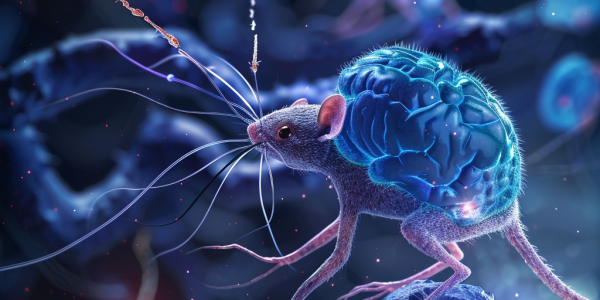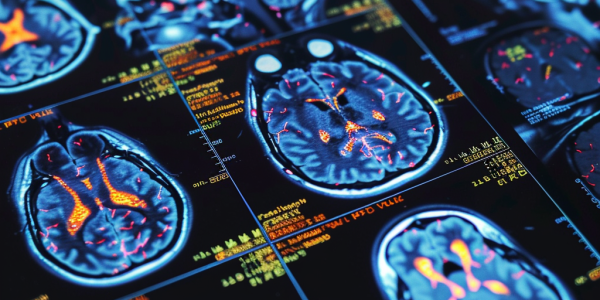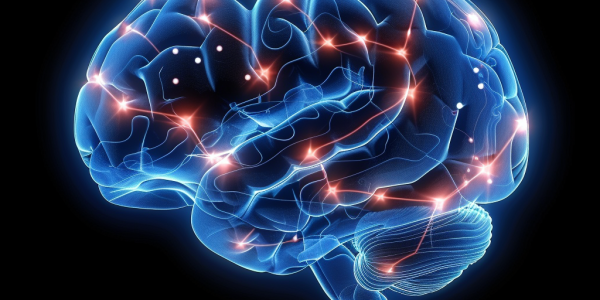Climate Change’s Impact on Brain Health
Climate change is impacting brain health, worsening conditions like stroke, migraines, Alzheimer’s, and more. Rising temperatures and humidity levels can disrupt brain function and exacerbate neurological diseases. Medications used to treat these conditions can further hinder the body’s ability to cope with extreme temperatures. As global temperatures rise, the incidence of neurological diseases is expected to increase, making it crucial to address the impact of climate change on brain health to safeguard public health.
China Unveils NeuCyber Array BMI System at 2024 Zhongguancun Forum
China unveils the NeuCyber Array BMI System, showcasing its advancements in brain-machine interface technology. With a focus on innovation and growing market demand, China is positioning itself as a key player in the field. Experts highlight the potential for thought-controlled actions and the application of BMI technology in neurological disorders.
The Link Between Exercise, Muscle Function, and Brain Health
Discover the significant link between exercise, muscle function, and brain health in a recent study. Learn how neurons influence muscle secretions, the impact of glutamate on muscle activation, and the implications for aging and neuromuscular health. Find out how exercise-induced muscle secretions enhance brain function and the importance of maintaining the brain-nerve-muscle loop for overall well-being.
Study Shows Potential of Cross-Species Hybrid Brain Transfers in Restoring Sensory Function
A groundbreaking study led by researchers at Columbia University’s Irving Medical Center has demonstrated the remarkable potential of cross-species hybrid brain transfers in restoring sensory function. By incorporating rat stem cells into a developing mouse embryo, scientists were able to create a ‘hybrid brain’ capable of rescuing the mouse’s sense of smell when impaired. This innovative approach holds significant promise for regenerative medicine, particularly in the realm of restoring neural function in damaged or degenerating brains. Professor Kristin Baldwin highlighted the importance of this research in expanding our understanding of neural circuitry flexibility and the potential applications of such hybrid brains in diverse scenarios, including human-machine interfaces and stem cell transplants.
Breakthrough in Understanding Postpartum Depression and Anxiety
Recent research in Human Brain Mapping has identified biological markers for postpartum depression and postpartum depression with anxiety, offering new insights into diagnosis and treatment. Postpartum depression affects 12% of new mothers, with up to 70% also experiencing anxiety, making precise diagnosis crucial for tailored treatment.
Certain Jobs Linked to Higher Risk of Dementia, Study Finds
Certain types of jobs, such as housekeepers and construction workers, may increase the risk of developing dementia, according to a study published in Neurology. Jobs involving routine tasks were found to raise the risk of mild cognitive impairment and dementia. In contrast, occupations that require cognitive activity were suggested to have a protective effect against dementia. Education and job complexity were also identified as factors influencing dementia risk, highlighting the importance of engaging in mentally stimulating activities throughout life.
Study Reveals Emotional Processing Dynamics in Treatment-Resistant Depression Patients
A recent study reveals that individuals with treatment-resistant depression (TRD) exhibit heightened sensitivity to negative stimuli and reduced responsiveness to positive ones. Researchers utilized stereotactic electroencephalography (sEEG) to investigate emotional processing in the amygdala and prefrontal cortex of TRD patients, uncovering significant differences. The findings suggest that correcting these neural discrepancies through deep brain stimulation (DBS) could lead to more effective interventions for TRD. This study, published in Nature Mental Health, sheds light on the emotion-processing bias in depression and the potential for DBS to modify neural responses to emotional stimuli.
The Power of Leafy Greens: Boosting Health and Slowing Cognitive Decline
Recent research suggests that incorporating more leafy greens into our daily meals can boost health, slow down age-related cognitive decline, and even reduce the risk of bowel cancer. Leafy greens like spinach, kale, and lettuce are rich in essential nutrients that have been shown to improve memory and recall abilities. Dr. Linia Patel, a registered dietitian, highlights the profound impact of green leafy vegetables on overall health and heart health, advocating for their inclusion in our diets to enhance well-being and longevity.
Study Finds Microplastics in Human Gallstones, Raises Concerns
Recent study reveals that exposure to microplastics can worsen gallstone formation, with younger individuals showing higher levels of toxic substances. Microplastics, found in various environmental sources, have been linked to potential health risks like Parkinson’s disease and antibiotic resistance. Researchers stress the importance of reducing plastic usage to mitigate these risks.
Physical Activity Lowers Cardiovascular Disease Risk by Reducing Stress-Related Brain Activity, Study Finds
New research from Massachusetts General Hospital (MGH) suggests that physical activity plays a key role in reducing the risk of cardiovascular disease by lowering stress-related signaling in the brain. The study, published in the Journal of the American College of Cardiology, indicates that individuals with stress-related conditions, such as depression, experience the most cardiovascular benefits from engaging in physical activity. The findings underscore the importance of physical activity in promoting cardiovascular health, particularly for individuals with stress-related conditions.










